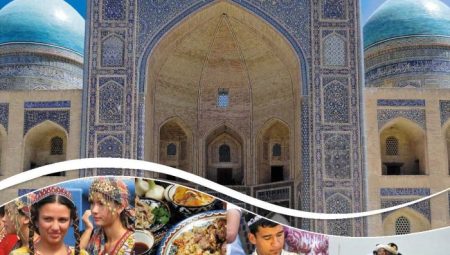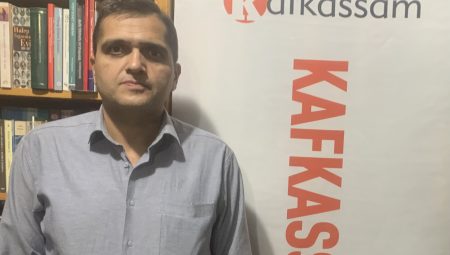“We changed our wedding plans the day before, after realizing that the blockade would not be lifted anytime soon,” says Aspram Abrahamyan, 19.
“We were among the first to have the courage to celebrate a major occasion during the blockade, and we served as an example for others not to cancel their plans,” she adds.
Images from her wedding on December 22, 2022, circulated widely on social media.
It was just 10 days after Azerbaijani government-backed activists set up camp on the road in the Lachin corridor, blocking the sole land route connecting the region to Armenia and the outside world.
The blockade changed everything in Karabakh. The import of supplies was limited and implemented mainly through Russian peacekeepers deployed in the region after the 2020 war. Gas and electricity supplies were cut by Azerbaijan, and the population of roughly 120,000 Armenians found themselves locked inside their small enclave.
The Abramayans’ wedding was planned long before the blockade and with the exuberance of typical Armenian nuptials: numerous guests, richly laid tables, and decorations. But a sense of responsibility amid the emergency, as well as the unexpected shortages, led them to scale back their sumptuous plans.
“The restaurants could not provide all the necessary dishes we ordered, and many guests from Armenia and abroad couldn’t arrive… so we decided to cut the number of guests and gather only with our closest family members. Restaurant staff brought food from their homes so the ceremony could keep up its flow,” says Abrahamyan.
Another young couple, Snezhana and Sergey Safaryan, got married recently in Stepanakert, the de facto capital of Nagorno Karabakh. Their celebration was also modest, though they did try to honor tradition and maintain the “taste and smell” of an Armenian wedding, says Sergey, the groom.
“I couldn’t see a valid reason to cancel or postpone the event. If the opponent [Azerbaijan] is trying to terrorize us psychologically, we must respond by creating new families,” he tells Eurasianet.
“No matter how much they blockade our freedom of movement, limit our supplies or deprive us of electricity and gas. It only strengthens our determination to live here,” Safaryan adds.
Weddings and engagements are among the social occasions that provide an escape from the dire reality they found themselves in after the blockade.
The Azerbaijani self-styled activists concluded their protest in late April, but only after the installation of a border checkpoint introduced a different kind of restriction on movement between Armenia and Karabakh. Those traveling back and forth now have to present their passports to Azerbaijani border guards to travel between Armenia and Karabakh. Few have done so thus far, and most of those that have have been accompanied by Russian peacekeepers or the International Committee of the Red Cross (ICRC).
Dancing in the rain
In May, a video of two teenagers dancing in the rain in Stepanakert on the day of their high school graduation became an emblem of Armenians continuing to live in the region amid fears of imminent ethnic cleansing and talks over their future status.
“I realized that these few moments were enough to describe the unbending will and love of us, the young generation of Artsakh, for our restless Artsakh land,” Karen Galstyan, one of the dancers, said in an interview with RFE/RL, using an alternate Armenian name for Karabakh.
The cinematic images of the high schoolers’ dance were interpreted differently by the thousands of Armenians viewing and sharing it on social media. For some, it was an indicator of dedication to the land where Armenians have lived for centuries, while others heard the ominous ring of the “final last bell” in Karabakh (Armenians call high school graduation the “last bell”).
At another school, students held banners with photos of fallen soldiers and teachers from their school and wore sashes with the inscription “survivors.”
The fate of the Karabakh Armenians hangs in the balance as Armenian Prime Minister Nikol Pashinyan recently explicitly stated his readiness to recognize the region within the sovereign borders of Azerbaijan. His announcement was criticized and denounced by Karabakh’s high-ranking officials, as well as the Armenian Church, and Armenian organizations around the world.
Yerevan conditions its recognition offer on Baku offering security guarantees to the Armenian population of Karabakh but the Azerbaijani leadership has vehemently refused to do so.
Locals fear that Armenia’s recognition of Karabakh as part of Azerbaijan would give Baku the green light to subject them to “ethnic cleansing.”
However, as politicians continue to discuss their fate in the US, Brussels, and Moscow, Armenians in Karabakh reject “defeatist” attitudes and seek to maintain an ordinary rhythm of life.
“We created all the living conditions for our new family. We are very connected to our families and land, and we never even considered leaving,” says Abrahamyan. She is currently expecting her first child and believes that major or minor celebrations should still be part of their routine.
“I welcome all the events people celebrate. We shouldn’t let feelings of defeat take root in our society. We do not feel the pressure to accept being part of Azerbaijan. We created our family with the thought that it’s our home, and we will continue creating and prospering here,” she adds.
If the Yerevan-Baku talks maintain their current pace, a peace deal could be signed by the end of 2023, Armenian Security Council Secretary Armen Grigoryan told RFE/RL on June 5.
The signing of a peace agreement would seem to present Karabakh Armenians with a choice: either accept Azerbaijani rule or leave.
But many Karabakh Armenians regard both of these options as unimaginable: Co-existence because of the continuous violations of Armenian civilians’ rights by Azerbaijan during and after the 2020 war and fleeing because Karabakh is the only home they ever knew.
“If I leave my home now, it will be the same as if a mother left her newborn child to cry. Our homeland survives because people are living here. We have to stay here so those [Azerbaijanis] who think that our population will easily give up realize they are wrong,” says Sergey Safaryan.
https://eurasianet.org/karabakh-armenians-celebrate-life-occasions-as-uncertain-future-looms





